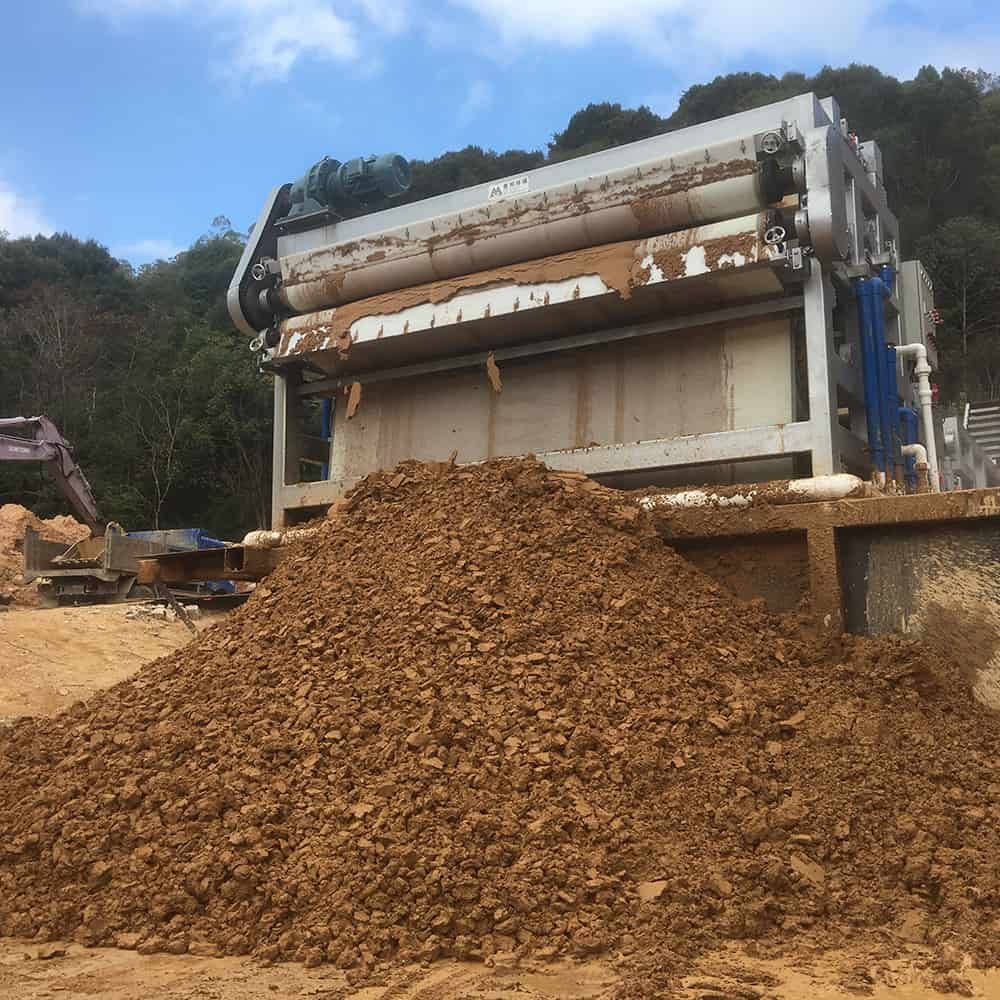Sludge Dewatering
Sludge dewatering is critical in waste treatment. Separate water from sludge (a semi-solid residue). Belt press is a usual machine for sludge dewatering.



Methods of Sludge Dewatering
Belt Filter Press: A slurry between two tensioned belts is passed through this press, which applies mechanical pressure to squeeze out the water. So It’s ideal for medium to high volumes of sludge and is quite simple in operation.
Filter Press: A filter press is a pressure filtration method for sludge dewatering. Pressurizing the slurry into the chambers between filter plates and squeezing it out with water through the filter cloths.
Centrifugation: Centrifuges Separate solids and liquid in the sludge by centrifugal force.
Screw Press: Uses a rotating screw in circular screen to squeeze the sludge. Next, simply push water out of the screen.
Application Industries
Waste Water Treatment in Urban Municipal Areas: They serve municipalities by treating sewage and waste water from residential, commercial and industrial sources. It is necessary for the volume of waste goes through further process or disposal, sludge dewatering.
Waste Water Treatment For Industrial: Many different kinds of industries generate wastewater that must undergo treatment. Useful for dealing with the solid waste is created in their process.
Food and Beverage: A food processing plant produces a type of organic sludge, needs dewatering to benefit recycling or disposal.
Pulp and Paper: Dewatering of paper mills generates slurry during production, need to manage it before recycling or disposal.
Chemical Processing: Wastewater produced from chemical manufacturing industries comprise large scale of pollutants that need proper disposal or treatment.
Mining: Mining generates large volumes of wastewater and sludge containing unprocessed minerals as well as potentially harmful chemicals, which both need reduction in volume for disposal.
The Significance of Sludge Dewatering
If not handled correctly, sludge can be a major environmental problem. It includes organic waste, heavy metals and material that can contaminate soil, water bodies & negatively affect the ecosystems. So, this is really important in:
Volume Reduction: Dewatering of waste slurry, removing water in the sludge to reduce its volume which make it easier for handling equipments and transport till disposal or recycling.
Resource Recovery: Dry sludge can be a valuable resource as phosphorus, organic matter for composting or biogas to energy production and therefore would support sustainability efforts.